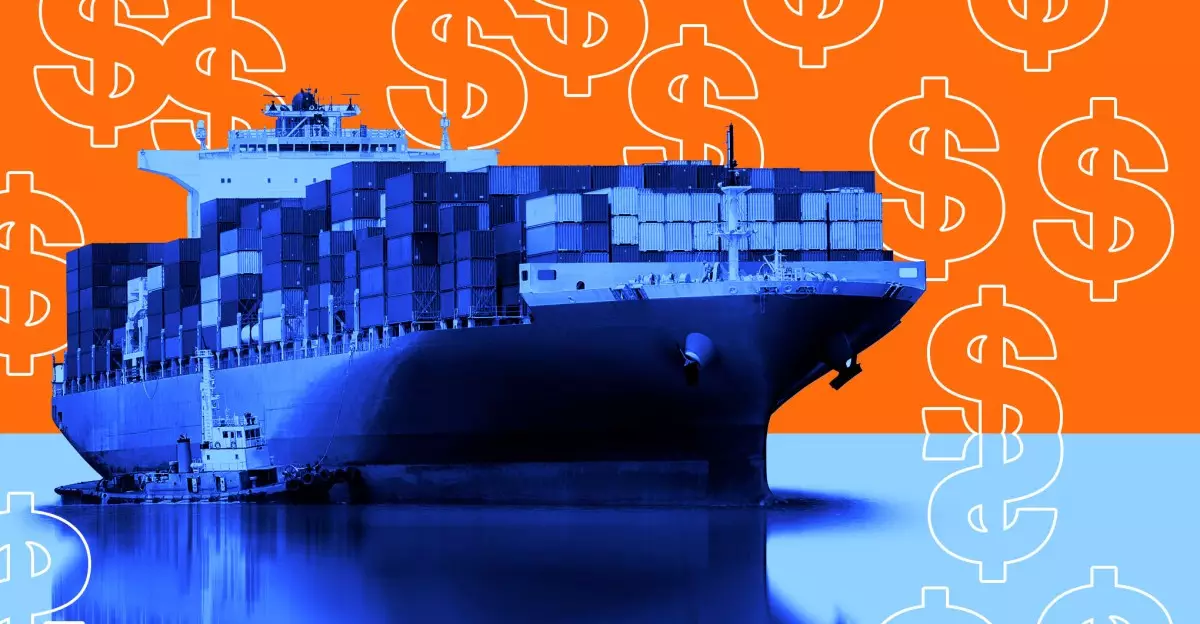In a monumental policy change that resonates throughout the e-commerce landscape, the de minimis exemption for import duties on low-value packages from China and Hong Kong has officially expired as of May 2, 2025. Previously, this exemption allowed U.S. consumers to receive packages valued under $800 without incurring additional tariffs. This rule benefited millions of online shoppers and countless retailers who relied on quick and economical direct shipping. The expiration of this exemption raises significant questions about the future of cross-border online shopping and the implications for consumer behavior in the United States.
The Tariff Landscape Post-De Minimis
Under the new tariff regime implemented through President Trump’s administration, packages that fall below the $800 threshold will now face staggering fees. For items sent through the international postal network, the new structure levies a fee equivalent to 90% of the item’s declared value, capped at $75. Meanwhile, packages dispatched via private couriers like DHL will be subjected to already existing baseline tariffs plus possible additional product-specific duties, elevating the potential cost even higher. Such increases signal a profound disruption for the casual consumer who often seeks affordable options available through platforms like Shein and Temu.
The ramifications of this policy shift go beyond mere dollars and cents. The de minimis exemption was not just a financial reprieve; it created a seamless experience for online shoppers who have grown accustomed to direct shipping of affordable products. The sudden imposition of these tariffs may catch consumers off guard, transforming everyday purchases into complicated transactions fraught with unforeseen costs.
Logistical Chaos: A Troubling Implementation
Compounding the challenge of new tariffs is the logistical chaos that accompanied the potential end of the de minimis rule earlier this year. The abrupt nature of the proposed changes created panic within the postal system, where USPS even went so far as to issue a statement halting shipments from China and Hong Kong. This confusion has led to a perception of instability that can undermine consumer trust in the system altogether.
Shoppers who previously enjoyed the convenience of receiving packages quickly may now confront considerable delays and fees on their purchases. The U.S. government has claimed it paused the phase-out of the exemption to establish “adequate systems” for managing the expected influx of tariff revenue. However, there remain unsettling doubts about whether these systems can efficiently handle the vast number of low-value parcels that typically stream into the country. Experts estimate processing these de minimis packages could amount to an annual cost of approximately $3.2 billion, a factor that cannot be overlooked in discussions about cost-effectiveness and operational efficiency.
The Broader Impact on Consumers and Retailers
For companies that thrive on low-cost imports from China — including Shein, Temu, and even major retailers like Amazon — the implications of the new tariff regime could be devastating. These businesses have constructed their entire operational models around the swift, low-cost delivery of goods that are now encumbered by additional financial burdens. The only alternative for many e-commerce platforms may be to pass on the costs to consumers.
As additional costs are layered in, the risk arises that consumers will encounter fewer purchasing choices. When faced with higher prices, shoppers may opt-out from buying altogether or shift to other vendors and categories of goods, dramatically altering the fabric of consumer behavior.
Navigating Uncertainty in Online Shopping
Additionally, the reasoning surrounding the end of the de minimis exemption, tied to combating synthetic opioid trafficking, raises serious concerns regarding its efficacy. How these new regulations will reduce the entry of illegal goods, especially when many packages previously classified under the exemption were not associated with illicit trade, remains to be seen. This approach appears more about fiscal gain than effective enforcement in the context of comprehensive drug control policies.
In navigating this new landscape, online shoppers must prepare for a vastly different environment — one where the ease and affordability of online shopping may become relics of the past. Consumers will need to rethink their purchasing strategies, be more selective about their buying habits, and potentially seek alternative vendors not impacted by these tariffs. If the objective was to generate greater revenue while enhancing national security, we must ask: at what cost to consumers, businesses, and the broader e-commerce ecosystem? The expiration of the de minimis exemption may ultimately result in an unintended backlash against the convenience of global commerce.


Leave a Reply